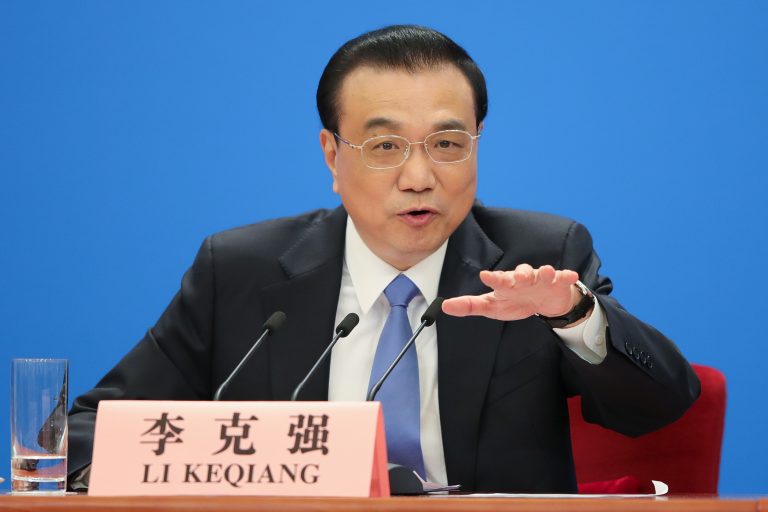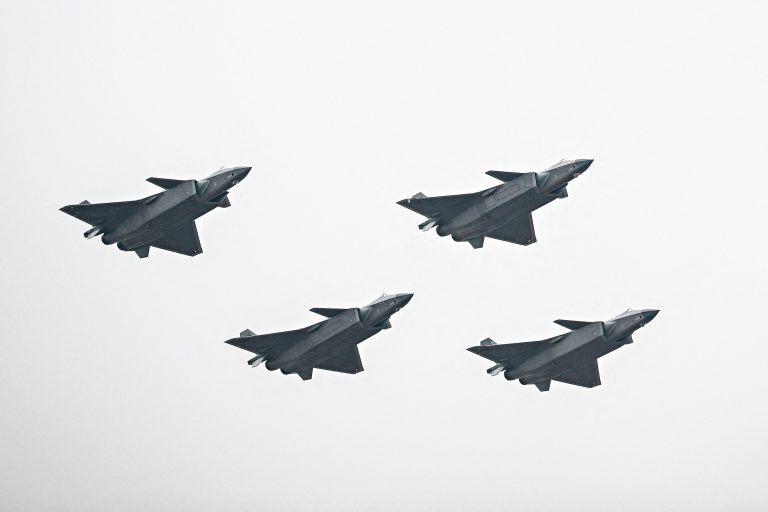News analysis
At a recent meeting in Shanghai, China’s number two statesman provided provincial leaders with the latest instructions on economic policy and social development, while indicating the severity of the country’s economic situation.
Speaking on Nov. 22, Premier Li Keqiang highlighted the impact of “new downward pressures on China’s economy” that are “intertwining, overlapping, and exceeding expectations,” according to state mouthpiece Xinhua. He described the “new challenges” as being caused in large part by “instability and uncertainty in the domestic and international environment.”
Leading officials at the meeting hailed both from China’s traditional economic powerhouses, such as Guangdong, Shanghai, Jiangsu, and Zhejiang provinces, as well as less affluent regions like the provinces of Guizhou and Jilin.
MORE:
Success
You are now signed up for our newsletter
Success
Check your email to complete sign up
China Shows Signs of Fiscal and Food Shortages Amid Slowing Economic Growth
Beijing’s Tech Crackdown Highlights Political Risks in China
The Chinese premier called upon local governments to “implement well” tax cuts, fee reductions, and other national directives to prioritize the protection of private business, partially small and medium enterprises (SMEs) as well as individual entrepreneurs — who make up a significant share of the Chinese economy.
Li also cautioned the officials against “campaign style” measures, telling them to avoid “one-size-fits-all” bureaucratic inefficiency and to ensure that policy and funding made its way to the grassroots of society.
Economic crisis
The meeting between Li Keqiang and the provincial leaders comes at a tricky time for the Chinese Communist Party (CCP) and China’s leader Xi Jinping: GDP growth is slowing, draconian “zero COVID” policies disrupt life and business, and global attitudes have been turning against Beijing for the Party’s human rights abuses and aggressive behavior abroad.
Sudden crackdowns on tech, education, entertainment, and other industries this year have raised political risks and increased uncertainty for investors. China Evergrande’s debt crisis is causing financial contagion and threatening the entire real estate sector, a key driver of China’s economic growth in recent years. Finally, severe natural disasters, a power crunch, raising commodity prices, and global inflationary pressures are adversely impacting economic operations.
Gauging the actual health of the Chinese economy is tricky given the CCP’s political culture. Official economic data is manipulated to upkeep the Party’s “great, glorious, correct” image. Propaganda outlets report the usually inflated figures, which are then picked up and often republished without scrutiny by international media.
Data manipulation and propaganda, however, can only go so far, as mounting domestic and external problems appear to be affecting the economy to the point where the CCP’s notoriously unreliable figures are failing to meet market expectations. Official GDP growth in the second quarter of 2021 was 7.9 percent, below forecasts of above 8 percent. China’s third quarter GDP figure was 4.9 percent, lower than anticipated growth of over 5 percent. Economists subsequently revised downward their growth forecasts for China this year.
Shoring up small business
Li’s statements at the Nov. 22 meeting in Shanghai affirm China’s dire economic situation. Beijing is prioritizing its support of SMEs and individual entrepreneurs because it anticipates that they will be hit hard when the economy worsens further. According to the premier, local governments should help smaller businesses with payments in arrears, cut costs, and resolve other problems, such as those of market supply and price stability.
In addition, while warning against “campaign-style, aggressive, one-size-fits-all” actions, Li exhorted local governments to “guarantee the basic livelihood and operation at the grassroots level” while lowering taxes and fees. He also called for further economic reforms to “release the vitality of various market entities.”
Local governments must also “resolutely oppose formalism, bureaucratism, and ensure that all work achieves effective results,” Li said.
READ MORE:
International Pressure Over Peng Shuai’s Disappearance Creates a Political Dilemma for Xi
The Party cannot allow smaller businesses to go under on a large scale or endure very tough times for a prolonged period lest it lose political legitimacy, which it tied to providing economic welfare from the Deng era. By increasing economic support to the people now, Beijing is also likely looking to delay for as long as possible the use of unpopular domestic security measures to deal with rising social instability that would inevitably follow greater economic hardship in China.
Bureaucratic malaise and the Party’s dilemma
Li Keqiang’s statements during the Shanghai meeting show that the CCP’s political culture is a major obstacle to meeting China’s current economic challenges.
Chinese officials usually default to communist-style bureaucratism when implementing orders from the central government. This includes interpreting and acting on policies from a left-orthodox and often more extreme angle (leaning left is usually more “politically correct” in the CCP regime), as well as putting local interests over central interests even if it means jeopardizing the latter.
Likely mindful of the officialdom’s “prefer left rather than right” tendencies, Li had to explicitly instruct leading provincial officials not to adopt “campaign-style, aggressive, one-size-fits-all” measures. Beijing fears that the widespread application of such measures, while certainly left-orthodox, would worsen rather than fix the regime’s economic woes. Also, Li’s order for provincial governments to ensure that central government funding meant for lower level governments in sent directly to them indicates that Beijing is aware of and is trying to address a long-term corruption problem; higher level local governments are known to take a cut of central government funding meant for lower level local governments as the funds get transferred down, resulting in a situation where the latter may not see much of the central government’s funding when they finally receive it.
Finally, Li’s call for local governments to enact economic reforms and “resolutely oppose formalism, bureaucratism, and ensure that all work achieves effective results” is an indirect indictment of the officialdom. Li had made those requests in years past, and the fact that he had to say them again indicates that officials are not adequately acting on the central government’s orders. Li repeating the mobilization call in a meeting on economic work also reflects the severeness of China’s economic situation, and how Beijing needs to ensure that its orders go beyond the gates of Zhongnanhai and make it to the local levels of administration if it is to successfully turn around the economy and preserve the regime.
Larry Ong is a senior analyst with New York-based political risk consultancy SinoInsider. He was part of the SinoInsider team that forecasted the 19th Party Congress and 2018 Two Sessions personnel reshuffles with a high degree of accuracy.













